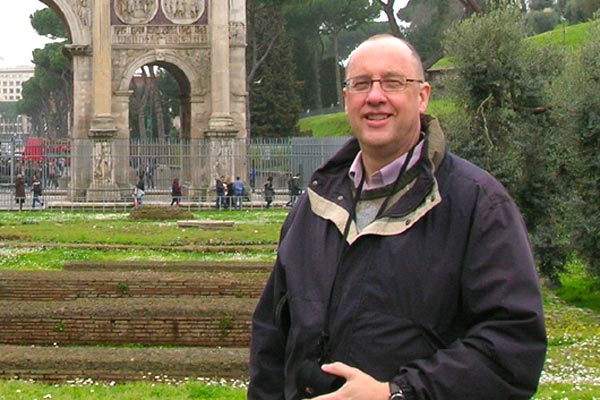Why I Teach
Timothy Thibodeau, Ph.D.
Professor of History
I have spent three decades in a college classroom sharing my love of history with generations of students. By training, I am a “medievalist,” an expert on the religion and culture of Europe in the Middle Ages. My publications are based on my work with manuscripts that are more than one thousand years old. I have also had the pleasure of traveling to remote monasteries and cathedrals in France and Italy to contextualize my research. Even though I am a scholar, I am always humbled when I stand in the presence of these ancient monuments; I am as awestruck as any modern tourist would be when seeing these artifacts for the first time.
But historians have the awesome task of combining this sense of wonder with rigorous research and teaching that interprets for the current generation the valuable lessons from these lost cultures. Most of the students I teach are non-majors, but I thrive on the challenge of presenting what I study in a creative and timely manner, making it applicable to our own world and lived experiences. Since September 11, 2001, for example, there has been a renewed academic interest in the ongoing conflicts between Christianity and Islam. This has led to many fine new academic works on the history of the Crusades in the Middle Ages. This tension between the traumas and dramas of the present and the search for historical context for current events fuels some of the best research in my field. As I tell my students, we must always teach to the times we live in, if we wish to be faithful to our primary responsibility as liberally educated global citizens.
